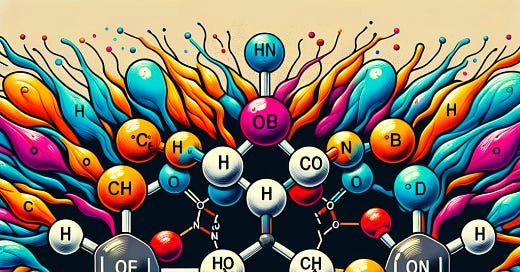Recently, I read an interesting article on dopamine and entrepreneurship published in the Journal of Business Venturing Insights. These days, most alerts I get are from business publications, not psychological ones—the business world seems eager to leverage the creativity, innovation, and unconventional thinking of ADHD individuals.
The core takeaway from this research is the concept of "dopaminergic personality," something people with ADHD are reported to have. This was a new idea to me. According to the abstract, certain personality traits linked to dopamine—such as openness, extroversion, and industriousness—are common among entrepreneurs. Many successful entrepreneurs, including the founders of JetBlue Airways, IKEA, and Kinko's, have been identified with ADHD.
This theory posits that the functioning of the dopaminergic system in individuals with ADHD is responsible for their distinctive qualities, such as creativity, innovative thinking, and high energy levels.
What Exactly is Dopamine?
Dopamine, a neurotransmitter, influences how we behave, including how we seek reward and pleasure, what motivates us, and our risk tolerance. This theory posits that the unique functioning of the dopaminergic system in individuals with ADHD is responsible for their distinctive qualities, such as creativity, innovative thinking, and high energy levels.
The dopaminergic system in people with ADHD is different. It's not merely a case of low dopamine levels—a common misconception—but instead, it's about how differently this system operates within them.
Do ADHD People Have These Traits?
ADHD people DO often exhibit creativity, innovative thinking, and high energy levels, especially when engaging in activities that interest and excite them.
However, when their unique strengths are not supported, when they face criticism, when they are asked to perform tasks ill-suited for their brains, or when confronted with discriminatory environments, they may struggle to use their executive functions and also experience anxiety and depression. And unfortunately, this is often the norm in our world.
Critiques of the Theory
This theory minimizes the role of other factors like genetics, environment, social relations, and personal thoughts in shaping us. Also, not every person with ADHD will exhibit these traits, and dopamine is not solely responsible for these traits in individuals with ADHD.
Recognizing the positive traits of ADHD people and considering them as advantages rather than challenges can be highly beneficial. Although this theory has some flaws, it could pave the way for more supportive and nurturing environments for ADHD children at school and ADHD employees in the workplace and even help to reduce societal stigma.
Envisioning a Supportive Future
Imagine recognizing children with ADHD and similar traits as naturally inclined towards entrepreneurship and innovation and providing them with specialized programs to nurture these abilities! What if the experience for children with ADHD shifted from being criticized, judged, and feeling inferior to one where their uniqueness is nurtured, allowing them and society to realize their full potential?
For example, this theory could inspire a workplace perspective that supports flexible work environments, tailored business development programs, more accessible mental health resources, and neurodiversity in teams. Such changes could significantly benefit individuals with ADHD and society as a whole.
It's important to continue recognizing each individual's inherent worth and potential, creating a community where everyone can thrive. Surprisingly, corporate America seems to be advancing in this area more than the field of psychology. I'll keep you updated on what the business journals are saying. I hope you find it as interesting as I do.





